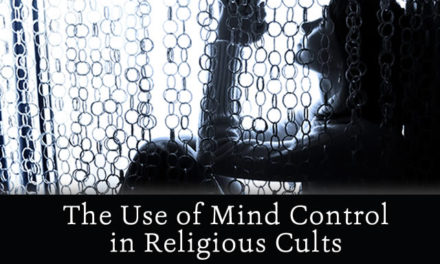“A dead thing can go with the stream, but only a living thing can go against it.”
G.K.Chesterton
“For am I now seeking the favor of men, or of God? Or am I striving to please men? If I were still trying to please men, I would not be a bond-servant of Christ.”
Galatians 1:10
In high control religious systems everyone plays his or her appointed role. When someone breaks out of their role they fulfill another purpose within the system, an object lesson, which will be used to strengthen the control of the leadership.
These players are called the Tyrant, the Henchmen, the Silent Sheep, the Wounded and the Dissident. As you read their descriptions think of who modeled the role in your own experience. It needs to be said here that the second through fifth roles can be the same person but at different stages, or times. This will be explained later
.(1) The Tyrant is always the head of the organization or group. Frequently he is the founder. There is usually a cult of personality, or an adulation of the leader. He is not open to criticism or disagreement. He will not put up with anyone who might compete with him. Though he seems extremely confident, he is really an insecure person who has compensated through the use of power, fear, manipulation, guilt, and intimidation. Anyone who opposes him in any way must be sent away or run off, usually with their reputation in tatters.
(2) The Henchmen. The Tyrant relies on this second level of leadership to monitor and control the group. The Henchmen get their sense of reward or fulfillment by pleasing the Tyrant. In a cult of personality, the closer you are to that central person, the more prestige and power you have. Thus the Henchmen will do the dirty work for the tyrant. They will enforce the group’s rules by the methods prescribed by the Tyrant, which is usually the use of manipulation, intimidation, fear, guilt, and the threat of ostracism.
(3) The Silent Sheep The dysfunctional system has enablers much like that of the family of an alcoholic. You’ve probably seen images of the three monkeys who “see no evil, hear no evil, and speak no evil.” Like them, the Silent Sheep fear to rock the boat. They lack the confidence that what they see, hear, or think could be true. In high control groups the leaders want followers like little children who have not learned enough, or had enough life experience to have confidence in their own judgment. Silent Sheep invariably defer to the views of their leaders. They have a “learned powerlessness.” Because they will not speak up they also think they are alone in their views and do not know that many have also observed the same things.
However, these Silent Sheep can become very vocal when defending the group to outsiders, or against those they view as apostates. When they become vocal in their defense they are called Loyalists. Their world is very insecure. Within the group they fear the insecurity they might create if they express their thoughts. To outsiders who criticize the group they will strenuously defend their unreal world lest it become insecure.
(4) The Wounded. This person has crossed the line in some way that brought down the ire of the Tyrant or one of his Henchmen. He or she has been marked by the group for humiliating treatment. In a dysfunctional group, this person serves as an example to demonstrate that the Tyrant will follow through with a public humiliation, so others will fear to speak their minds or question him. The Wounded individual is in great self-doubt, and may have internalized the false guilt the system has imposed.
If you are one of the Wounded please know that God Himself is angry with those who have put this guilt on you. He demonstrated this in the Gospels when He healed a man born blind and told him to go and wash himself at the pool of Siloam (John 9). The man came into conflict with the religious rulers because his healing was by Jesus, whom the religious leaders feared. Thus, they had to accuse the man in some way. They excommunicated him, or as the Bible says, “They cast him out.” Jesus sought him out and introduced Himself as the Son of God, his Savior, and the man worshipped Him. In John 6:37 Jesus said of this type person, “…the one who comes to me I will certainly not cast out.” Jesus will not excommunicate anyone who comes to Him. If Jesus Himself will not cast you out then don’t be afraid of anyone else making such a threat. Don’t allow yourself to remain wounded. There is help for you.
(5) The Dissident has seen enough. His conscience has won out and he must speak up. Dissidents tell what they know, and have seen, and they are usually very angry about it because of their own injury, or the injury of someone they love. Anger imparts the courage to overcome a learned powerlessness and take a stand.
The group cannot allow a dissident to speak his or her mind freely. The methods to silence Dissidents will be fear, guilt, intimidation, manipulation, and more. Some groups will even buy the silence of dissidents. If they cannot prevent the dissident from speaking then they must close the ears of those loyalists in the group who are not yet informed. One thing is frequently true in every group – most dissidents cannot leave the group with their reputation intact.
As said before, different roles can be the played by one person at different stages. I have seen a Henchman who was also a Silent Sheep become a Wounded Dissident almost overnight. This person had been both a Silent Sheep and a Henchman for years. Then, in a short period, his eyes were opened and the group wounded his reputation and ostracized him.
The Tyrant, on the other hand, seldom ever repents. The Tyrant is like a person who is riding a Tiger; he dare not get off. He is too insecure to face the consequences of letting go of control.
By David Henke






